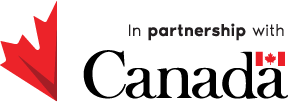Sexual Health and Empowerment (SHE)
The Situation
In the Philippines, deeply-rooted social norms make it difficult for women and girls to take control of their sexual health. Many young women and men do not access sexual health services because doing so requires their parents' permission. A lack of comprehensive sex education in schools compounds this issue.
Teen pregnancy has become a critical issue in the Philippines, and many women have little choice when it comes to the number and timing of their children. In fact, many women have little choice about their sexual health, period. Gender inequality, sex trafficking, violence and child, early and forced marriage limit control over sexual health and other important life choices.
In 2012, the Philippines passed a law that guaranteed universal access to contraception, sex education and maternal care. The reality is that the laws are not being implemented, and many Filipina girls and women still don't have access to the health care they need.
As part of the Sexual Health and Empowerment (SHE) project, we are strengthening local access to vital information and services, so women and girls can take control of their bodies and futures.
SHE has two components:
- Public education in communities and training of health care workers to shift attitudes, increase knowledge, and improve access to sexual and reproductive health information and services.
- Build skills and knowledge in women's rights organizations to conduct research and advocate for sexual and reproductive health and rights, including the prevention of gender-based violence.
SHE is an important project in our work to achieve women's sexual and reproductive health and rights (known as SRHR).
DETAILS
LOCATION
Philippines
DURATION
5 years (2018-2023)
Read the program description in French (PDF).
OUR SUPPORTERS
This project is undertaken with the financial support of the Government of Canada, provided through Global Affairs Canada, and the generous Canadian public.

What are we doing?
EDUCATION
Training public health workers and working with men and women to change negative attitudes on sexual and reproductive health and rights
BREAKING BARRIERS
Addressing barriers, such as gender inequality and a lack of resources, that prevent women from exercising their rights
ADVOCACY
Supporting local organizations to advocate for change
What do we hope to achieve?
We will address barriers that prevent women from exercising their right to sexual health care, advocate for the country's law mandating universal access be respected, and support local organizations to reach women and girls who wouldn't otherwise be able to access vital information and services.